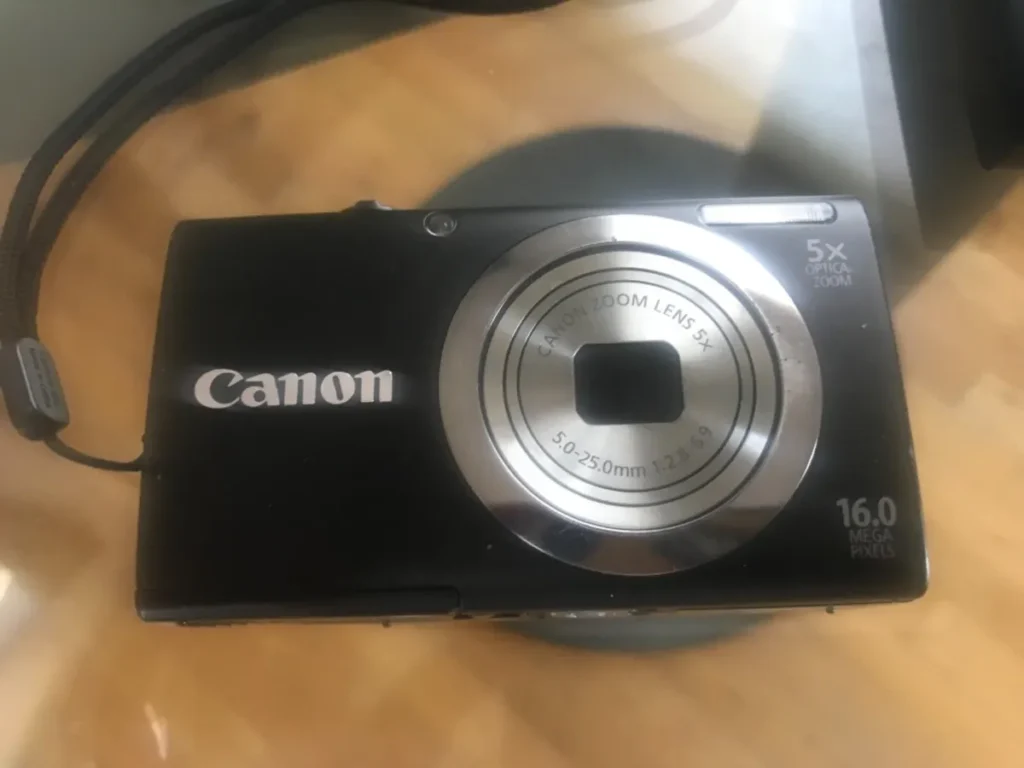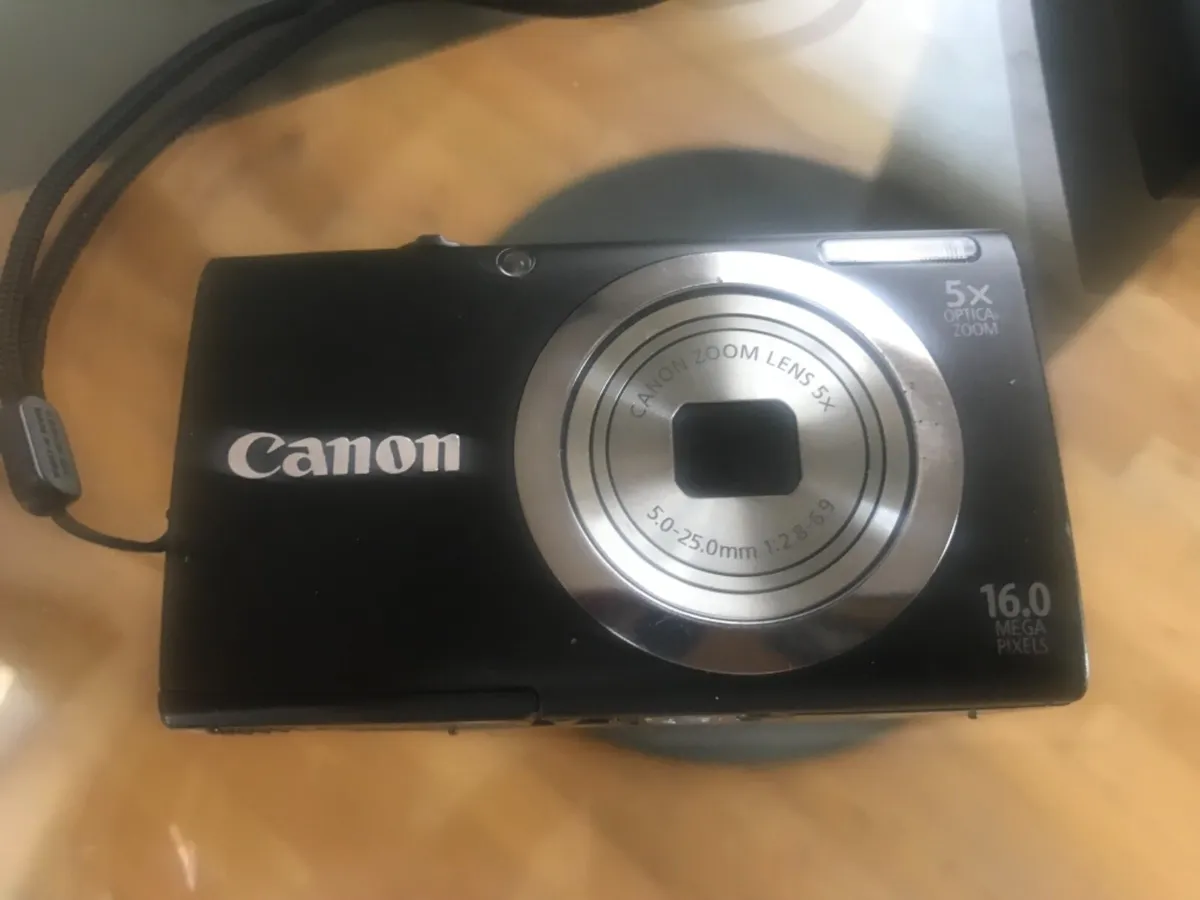

Are you tired of frequently running out of battery while using your Canon camera? Do you want to learn more about how to choose the best battery for your Canon camera and make sure you never have to deal with a low battery again?
In this article, we will discuss everything you need to know about Canon camera batteries, including their types, features, advantages, and disadvantages. We will also provide tips on how to properly maintain and charge your battery to extend its lifespan.
Types of Canon Camera Batteries

Canon cameras typically use two types of batteries: lithium-ion (Li-ion) and nickel-metal hydride (NiMH). Let’s take a closer look at each of them:
Lithium-Ion (Li-ion) Batteries
Li-ion batteries are the most common type of battery used in modern electronics, including digital cameras. They are known for their high energy density, long lifespan, and low self-discharge rate. Li-ion batteries can also be recharged multiple times without losing their capacity.
Canon manufactures three types of Li-ion batteries for its cameras: LP-E6, LP-E8, and LP-E17. Each battery is designed to work with specific Canon camera models.
Nickel-Metal Hydride (NiMH) Batteries
NiMH batteries were widely used in digital cameras before the advent of Li-ion batteries. Although they offer a lower energy density than Li-ion batteries, they are cheaper and more environmentally friendly. NiMH batteries can also be recharged multiple times without losing their capacity.
Canon no longer manufactures NiMH batteries for its cameras. However, some third-party manufacturers still produce NiMH batteries compatible with Canon cameras.
Features of Canon Camera Batteries

When choosing a Canon camera battery, several features should be considered, including:
Capacity
The capacity of a battery determines how long it can power your camera before needing to be recharged. Canon camera batteries typically range from 700mAh to 1865mAh, depending on the model.
Voltage
The voltage of a battery determines the amount of electrical pressure it can deliver to your camera. Canon camera batteries typically have a voltage of 7.2V or 7.4V.
Compatibility
Make sure the battery you choose is compatible with your Canon camera model. Using an incompatible battery can damage your camera and void its warranty.
Advantages of Canon Camera Batteries

Canon camera batteries offer several advantages over other types of batteries, including:
High Energy Density
Li-ion batteries have a higher energy density than other types of batteries, which means they can store more energy in a smaller size. This makes them ideal for use in compact devices like digital cameras.
Long Lifespan
Canon camera batteries are known for their long lifespan, which means they can be recharged multiple times without losing their capacity. This not only saves you money but also reduces waste and helps protect the environment.
Low Self-Discharge Rate
Li-ion batteries have a low self-discharge rate, which means they can retain their charge even when not in use for extended periods. This ensures your camera is always ready to use when you need it.
Disadvantages of Canon Camera Batteries

Despite their many advantages, Canon camera batteries also have some drawbacks, including:
High Cost
Li-ion batteries are generally more expensive than other types of batteries. However, their long lifespan and rechargeability make them a worthwhile investment in the long run.
Limited Compatibility
Each Canon camera model requires a specific type of battery, which can make it difficult to find replacement batteries if you own multiple Canon cameras.
Examples of Canon Cameras using Li-ion Batteries
Here are some examples of popular Canon camera models that use Li-ion batteries:
- Canon EOS Rebel T7i
- Canon EOS 80D
- Canon EOS R5
- Canon PowerShot G7 X Mark III
Comparing Canon Camera Batteries and Third-Party Batteries
While Canon camera batteries are high quality, they are often more expensive than third-party batteries. However, third-party batteries can be risky as they may not be compatible with your camera model or offer the same performance and lifespan as a genuine Canon battery.
When considering a third-party battery, make sure it is designed for your specific Canon camera model and has been thoroughly tested and certified by reputable manufacturers.
Tips for Maintaining and Charging Your Canon Battery
To ensure your Canon camera battery lasts as long as possible and maintains its performance, follow these tips:
- Store your battery in a cool, dry place away from direct sunlight.
- Avoid overcharging your battery, which can damage it and reduce its lifespan.
- Charge your battery before it runs out of power to prevent deep discharge, which can also damage it.
- Use a genuine Canon charger to charge your battery, as third-party chargers may not be compatible or safe to use.
- If you won’t be using your camera for an extended period, remove the battery and store it separately to prevent damage from leaks or corrosion.
Conclusion
In conclusion, choosing the right battery for your Canon camera is essential for ensuring optimal performance and avoiding issues like low battery life. While Canon camera batteries may be more expensive than third-party options, they offer a high energy density, long lifespan, and low self-discharge rate that make them worth the investment.
When considering a third-party battery, make sure to do your research and only purchase from reputable manufacturers who have thoroughly tested and certified their products. Lastly, follow proper charging and storage practices to maintain your battery’s performance and extend its lifespan.
With these tips and insights into Canon camera batteries, you can make informed decisions about which battery to choose for your Canon camera and how to properly care for it.
